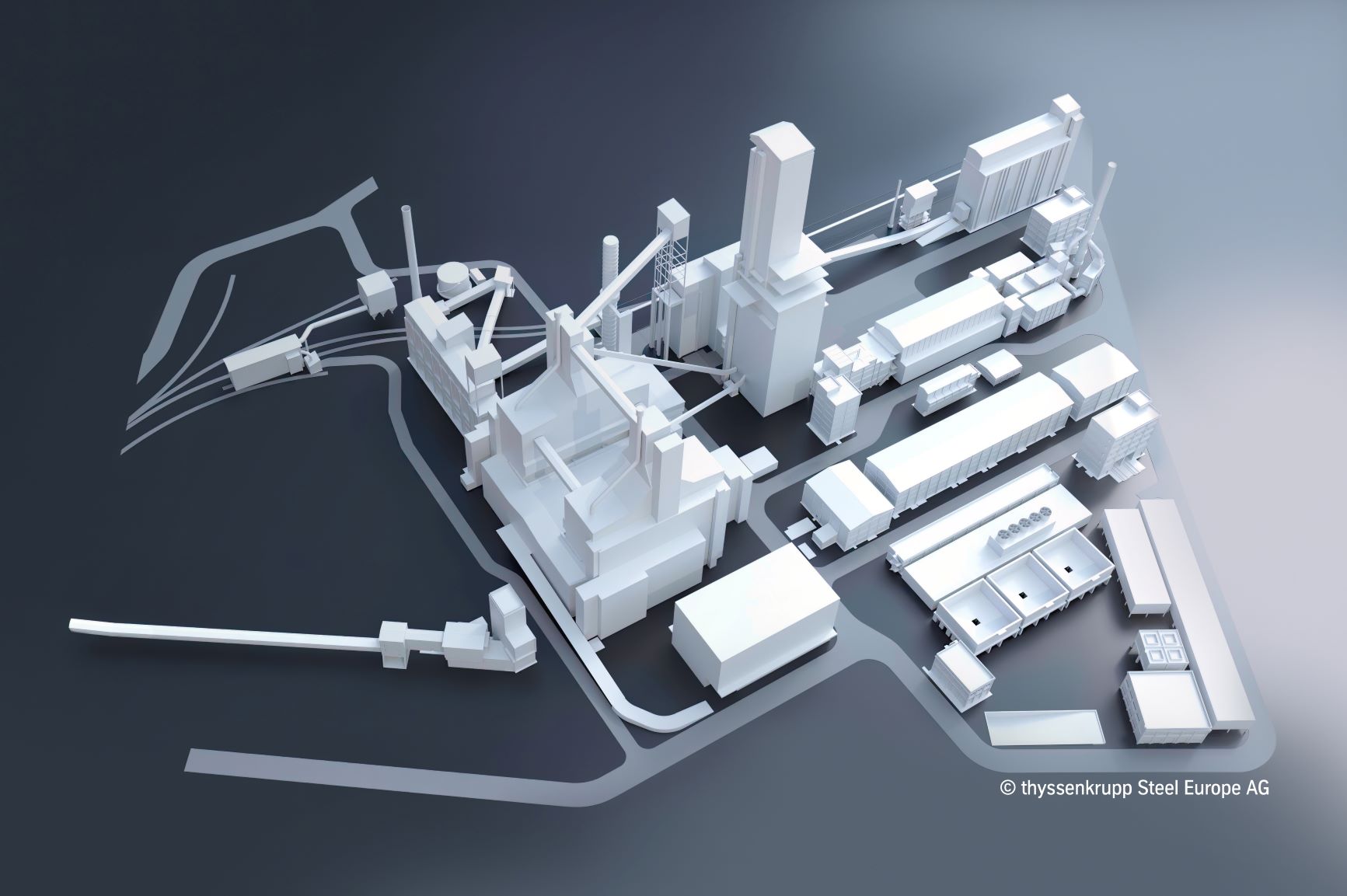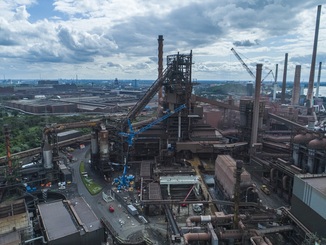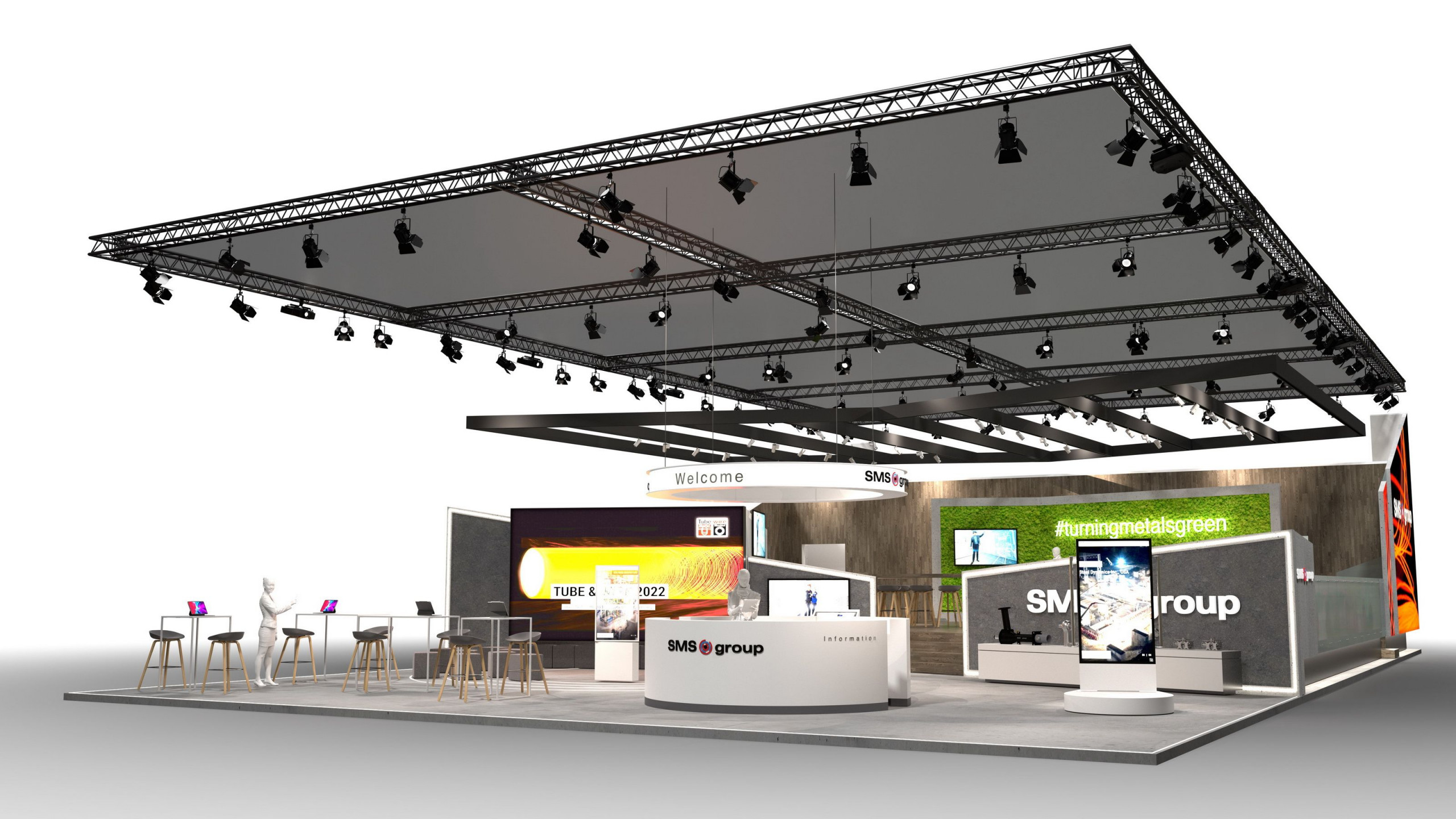
Car makers say goodbye to the combustion engine, steelmakers to the blast furnace: thyssenkrupp Steel (TKS) commissioned SMS with the engineering, supply and construction of the first hydrogen-powered direct reduction plant at the Duisburg site.
The order marks the start of one of the world’s largest industrial decarbonization projects, which will already be able to avoid more than 3.5 million tons of CO2 per year in the future. The order volume for SMS amounts to over 1.8 billion euros and also marks the largest single order in the company’s history.
Completion of the plant, which will have a capacity of 2.5 million tons of direct reduced iron (DRI), is scheduled for the end of 2026. Approval by the European Union under state aid law and the final notification of funding are expected in the next few months. The state of North Rhine-Westphalia and the German government have already signaled substantial financial support for the project.
Replacement of CO2-intensive primary steel production begins
For Germany’s biggest steel producer, the award of the contract marks a decisive technological turning point in its more than 200-year history: As part of the TkH2Steel transformation concept, the replacement of CO2-intensive steel production with climate-friendly technologies is now beginning. Up to now, large quantities of CO2 have been emitted by pig iron production in the coal-fed blast furnace. At the Duisburg site alone, this amounts to around 20 million metric tons per year.Hydrogen-based processes in direct reduction plants offer an essential basis for producing steel in a climate-neutral way in the future. thyssenkrupp Steel plans to avoid as much as 6 million metric tons of CO2 in 2030, well over 30 percent of its emissions. The transformation to climate-neutral production is to be completed by 2045 at the latest.
Order goes to SMS
SMS Group, a company from North Rhine-Westphalia, has been awarded the contract for the forward-looking plant at thyssenkrupp Steel. The order now placed is also historic for the Düsseldorf-based plant manufacturer: It is the biggest single order in its more than 150-year history, and thyssenkrupp will be the first steelmaker in the world to combine a 100 percent hydrogen-capable direct reduction plant with innovative melters.
By positioning the two melters directly next to the direct reduction plant, the solid starting material produced there is immediately converted into liquid iron; this makes the entire process particularly efficient. In addition, the spatial conditions of a complex metallurgical plant can be taken into account. The direct reduction plant is based on the Midrex Flex technology, SMS also supplies the innovative melters, slag granulation and other auxiliary equipment, for example water treatment.
Major step for innovative, industrial climate protection
The cooperation between thyssenkrupp Steel and SMS is also a strong signal for North Rhine-Westphalia as an industrial location. By building the direct reduction plant, the two companies are forming a partnership for innovation and for efficient industrial climate protection. While thyssenkrupp Steel today still causes 2.5 percent of Germany’s CO2 emissions, the first direct reduction plant will already save over 3.5 million tons of CO2. This corresponds to around 20 percent of the company’s current emissions. A single plant therefore reduces Germany’s CO2 emissions by 0.5 percent. At the same time, this step into transformation will preserve many thousands of good and qualified jobs and create new ones.
Web:
www.sms-group.com




